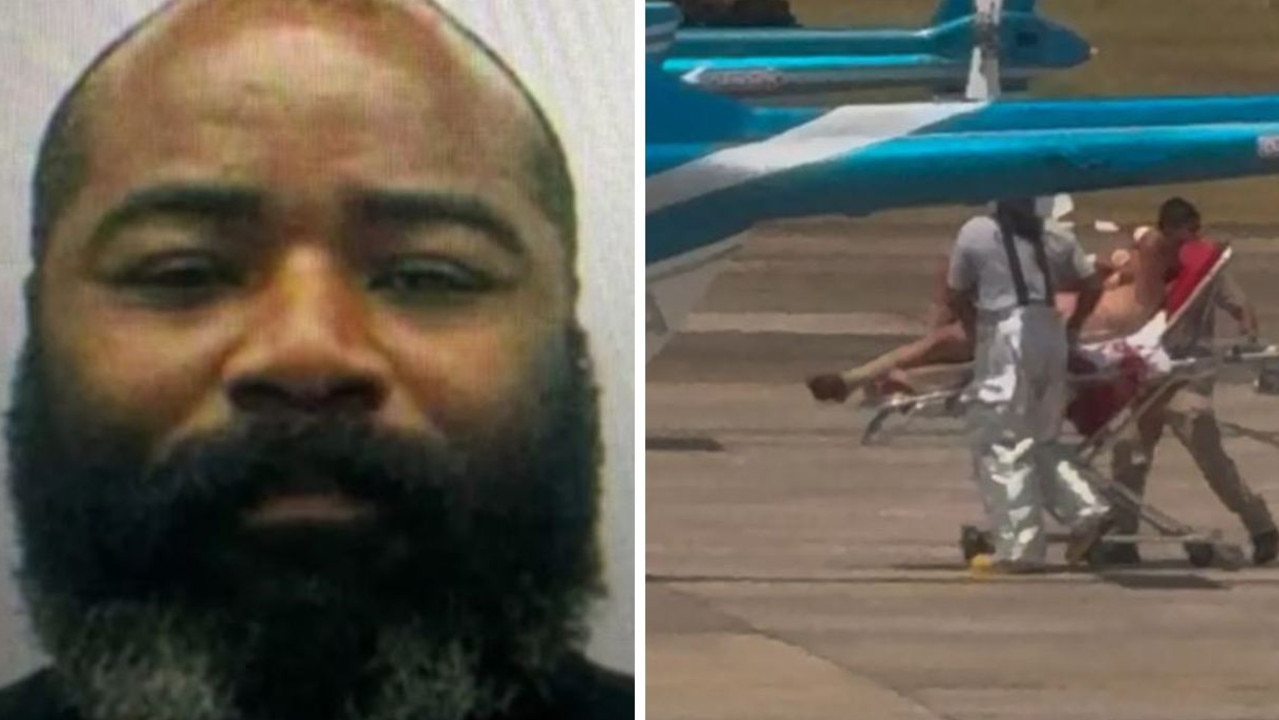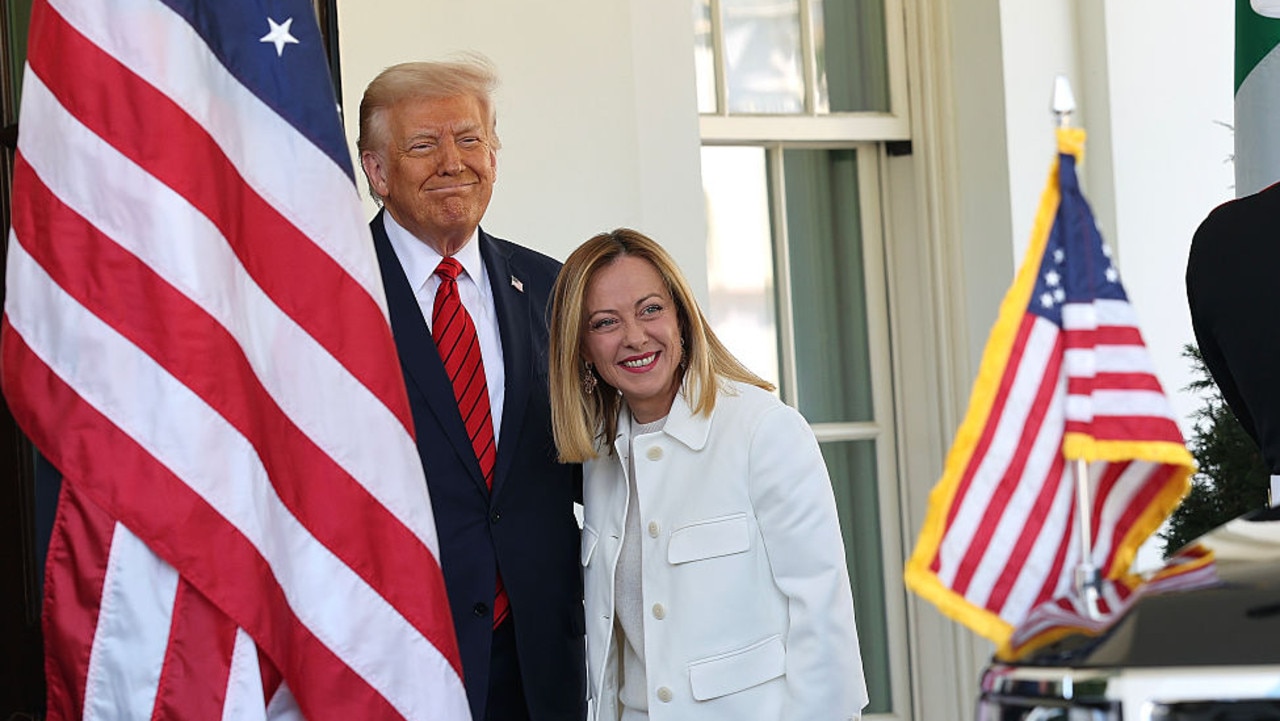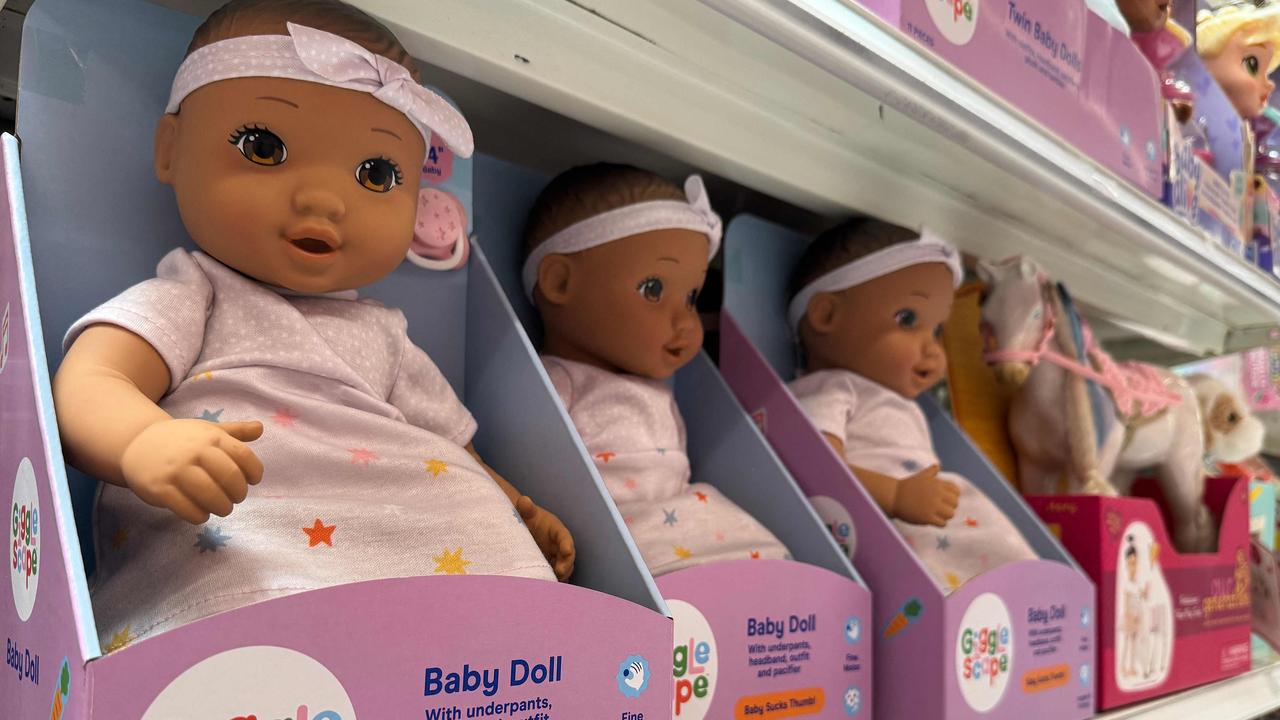Why Donald Trump could be right about George W Bush preventing 9/11
DONALD Trump says some outrageous stuff, but many pundits believe his controversial remarks on 9/11 are spot on.
AT FIRST glance it seemed like just another one of Donald Trump’s crazy statements but it turns out the Republican frontrunner could be right.
Unlike other controversial theories of Trump’s, such as those about President Barack Obama’s birthplace and Mexican immigrants, many are backing the billionaire’s statement that former US president George W Bush failed to keep the country safe during the September 11 terrorist attack.
The presidential hopeful sparked a heated exchange with rival Jeb Bush when he said on Friday that his brother, former US president George W Bush, failed in his responsibility.
“When you talk about George Bush, I mean, say what you want, the World Trade Centre came down during his time,” Mr Trump told Bloomberg TV.
At first Trump’s statement was ridiculed. Fellow presidential hopeful Ben Carson described it as “ridiculous” and former Bush press secretary Ari Fleischer said he sounded like a 9/11 “truther”, those conspiracy theorists who blame the government for the attack. Even the Bloomberg reporter who asked the question said: “Hold on, you can’t blame George Bush for that”.
When pressed on the issue, Mr Trump simply said: “He was president, OK? ... Blame him, or don’t blame him, but he was president. The World Trade Center came down during his reign.”
Jeb Bush hit back on Twitter describing Trump’s comment as “pathetic” and wrote a column for the conservative National Review, saying: “Trump echoes the attacks of Michael Moore and the fringe Left against my brother is yet another example of his dangerous views on national security issues”.
The National Review backed Jeb Bush’s comments in an editorial and said that while America’s national security system failed in the lead-up to September 11, the failures preceded former president’s inauguration.
“No fair review of what the administration knew in the weeks and months before the attacks, though, suggests that Bush acted neglectfully or irresponsibly,” the editorial suggested.
But others are not so sure.
About 3000 people were killed in the 2001 attack on the World Trade Towers and a number of families of the victims accused Bush of trying to rewrite history in defending his brother who he suggests “kept us safe”.
He kept us safe. pic.twitter.com/Plq9Hm7caE
— Jeb Bush (@JebBush) September 17, 2015“Jeb Bush’s revised version of history is pure fiction,” Nancy Meyer, a member of September 11th Families for Peaceful Tomorrows, said in an email to International Business Times.
“If we were so safe during the GW Bush administration, why did 9/11 happen at all?”
There were many others on social media who agreed.
I'm no fan of Donald Trump but 9/11 happened on your brothers watch, @JebBush @realDonaldTrump many, many American deaths on GWB hands
— Michael (@iShakeTheThrone) October 16, 2015that time @JebBush's brother "kept us safe" pic.twitter.com/rrj3yzm1Ly
— Oliver Willis (@owillis) October 16, 2015@JebBush that doesn't make sense. how were we safe if we were attacked?
— Stefen Anderson (@sventology) October 16, 2015Mr Trump also tweeted back at Jeb Bush saying: “You’re pathetic for saying nothing happened during your brother’s term when the World Trade Center was attacked”.
“I’m not blaming George Bush,” Mr Trump said in an appearance on Fox News Sunday.
“But I don’t want Jeb Bush to say, ‘My brother kept us safe,’ because September 11 was one of the worst days in the history of this country.”
It wasn’t long before commentators were examining the statement, and declaring that Mr Trump was in fact right about 9/11.
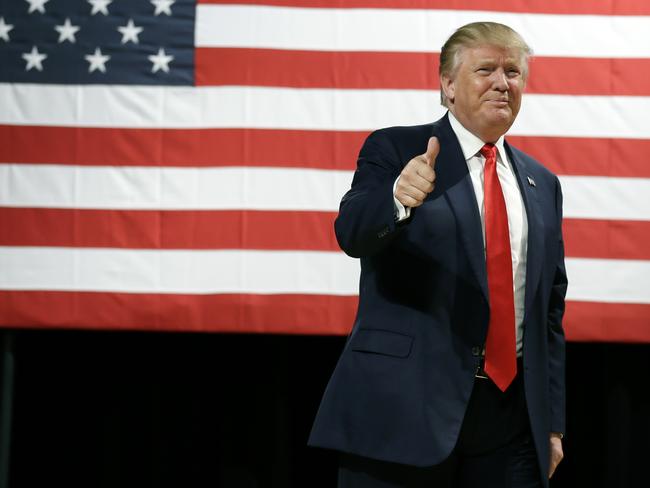
Contributing editor at The Atlantic, Peter Beinart said it was not possible to know whether George Bush could have stopped the attacks but the right question to ask was whether he did everything reasonable to stop them, given what was known at the time.
Beinart’s answer? “He didn’t. It’s not even close”.
The Bush administration’s failures have been noted as far back as 2012 when the New York Times ran a story saying: “the administration’s reaction to what Mr Bush was told ... reflected significantly more negligence than has been disclosed”.
Both articles refer to numerous warnings from the Central Intelligence Agency (CIA) as well as the National Security Council that al-Qaeda was a threat in the lead-up to the attack.
But the warnings were reportedly considered part of a “disinformation campaign”.
It was not until September 4 that Cabinet met and approved a plan to fight al-Qaeda, which had been recommended as far back as January.
The plan was sitting on George Bush’s desk, waiting for his signature, on the morning of September 11, 2001, when the attack on the World Trade Towers changed the world forever.
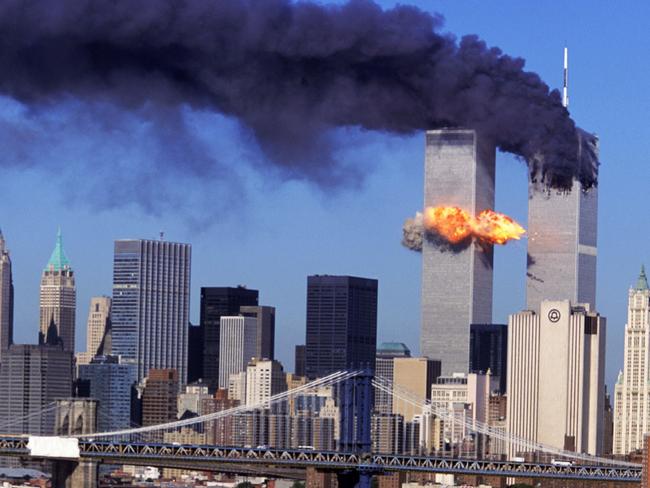
The security council’s chief counter-terrorism adviser Richard Clarke — who also worked for presidents Ronald Regan, George HW Bush and Bill Clinton — said he believed security officials would have been on high alert if the plan he recommended had been approved, and this could have turned up information about the plot.
“Buried in the FBI and CIA,” Clarke noted, “there was information about two of these al-Qaeda terrorists who turned out to be hijackers [Khalid al-Mihdhar and Nawaf al-Hazmi]”.
When asked whether this would have foiled the 9/11 attacks, he said: “There was a chance,” but argued top Bush officials “didn’t take it”.
In an opinion piece, CNN national security analyst and author of The Longest War: The Enduring Conflict Between America and al-Qaeda, Peter Bergen also argued that Mr Trump was right.
“Bush administration officials, of course, deny that they didn’t take the threat urgently enough, but there is no debating that in their public utterances, private meetings, and actions, the al-Qaeda threat barely registered,” he wrote.
In fact a notorious briefing that George W Bush received on August 6 titled “Bin Ladin Determined to Strike in US” seemed to elicit practically no public response. The president even chose not to interrupt what the Washington Post described at the time as the longest presidential vacation in more than three decades.
This is despite al-Qaeda being identified as responsible for an attack on a billion-dollar destroyer, the USS Cole in Yemen in 2000, which killed 17 American sailors.
The president’s top national security adviser Condoleezza Rice later told the 9/11 Commission that the administration were at “battle stations” after CIA Director George Tenent called an urgent meeting on July 10 to discuss the al-Qaeda threats.
But Mr Bergen argues there was no evidence of this, or that she did anything to “pulse” the national security system for information about jihadist militants in the US.
“It is worth contrasting Rice’s lackadaisical approach with that of [Bill] Clinton’s national security adviser, Sandy Berger, who held almost daily meetings of the National Security Council from mid-December 1999 as the new millennium approached and similar fears of a terrorist attack gripped the national security establishment,” he wrote.
The first cabinet-level meeting about the threat posed by al-Qaeda took place only one week before 9/11, on September 4, 2001, despite being requested by the National Security Council as far back as January when the Bush administration took office.
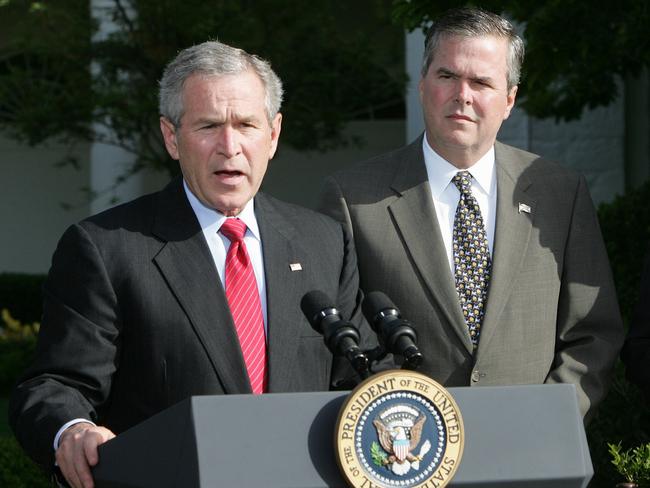
“The problem, then, was not a lack of information about al-Qaeda’s intentions and capabilities, but the Bush administration’s inability to comprehend that an attack by al-Qaeda on the United States was a real possibility, much more so than attacks by traditional state antagonists such as China or Iraq,” Mr Bergen wrote.
“This was a policy failure by the Bush administration, not, as many Americans believed in the years after 9/11, an intelligence failure.
“Indeed the CIA did an excellent job during the summer of 2001 of repeatedly warning senior Bush officials that al-Qaeda was planning a major attack. Where and when that attack was going to happen was, of course, not known.”
DEBATE CONTINUES
Mr Trump has continued the dispute with presidential rival Jeb Bush, which was sparked during the second Republican debate, when the billionaire businessman claimed George W Bush’s presidency “gave us Barack Obama, because it was such a disaster”.
While George W Bush’s favourability among all Americans remains mixed, nearly three-quarters of Republicans have a favourable view of him, according to a Pew Research poll in May.
Jeb Bush scored his biggest applause of the evening when he pivoted to his right to face Mr Trump and said calmly, “As it relates to my brother, there’s one thing I know for sure. He kept us safe.”
The debate hall at the Ronald Reagan Presidential Library erupted in applause, and the comment has since become a part of the former Florida governor’s campaign stump speech.
Yet Mr Trump shows no signs of slowing his ridicule of Mr Bush’s applause line.
On Monday, he tweeted links to stories about pre-9/11 intelligence failures and continued to talk it up Tuesday in a pair of television interviews.
“What happened is that Jeb Bush started talking about it and then instead of just letting it go, he started talking about it and now everybody virtually ... is agreeing with me,” Mr Trump said in an interview with Fox Business Network’s Stuart Varney.
“Because, let’s face it, you can’t say the country was safe when the World Trade Center came down during his regime.”
In the past week, George W Bush has written two emails to supporters asking for donations, and the campaign is using his name to appeal to donors, including one Sunday where Jeb Bush asks supporters to “help me defend my brother against Trump’s comments.”
— With AP

